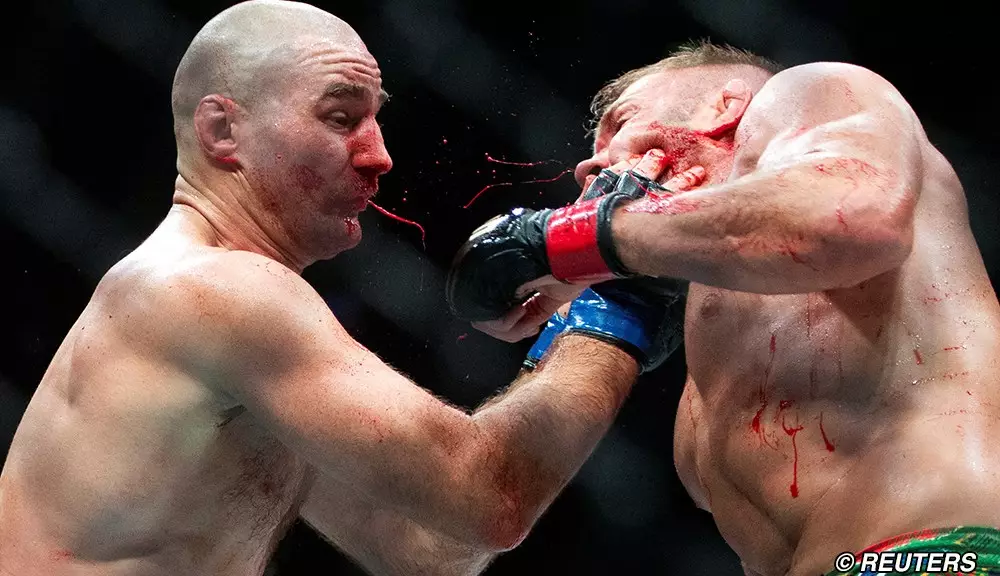Sean Strickland, the brash contender within the UFC middleweight division, has faced increasing scrutiny following his recent unanimous decision loss to Dricus Du Plessis at UFC 312. Despite his pre-fight assurances of altering his fight strategy and embracing a more aggressive style, Strickland’s performance was anything but convincing. Observers were left disheartened, not just by the defeat but by Strickland’s failure to deliver on his commitment to intensify his fighting style. Onlookers expected a battle but were met with a familiar pattern that lacks heart and urgency.
Critics have begun to dissect Strickland’s fight strategy in great detail. His incessant reliance on his jab and teep kick, while effective in some contexts, does not align with the demands of high-stakes matches. A pivotal moment in the bout occurred when Strickland’s nose was shattered by Du Plessis in the third round, further encapsulating the ineffective nature of his approach. Even before this injury, Strickland had not shown the kind of aggression or adaptability that is essential at this level of competition. His coach, Eric Nicksick, appeared to struggle to instill the necessary changes during the fight, revealing a rift between what was expected and what was delivered.
The aftermath of the fight stirred strong reactions, including notable comments from MMA analyst and coach Din Thomas. His observations brought to light a growing sentiment: Sean Strickland is not living up to the persona he has crafted. Thomas stated emphatically that Strickland’s bravado does not match his fighting realities; he described the fighter as someone who fails to be “who he says he is.” This harsh critique speaks to a broader disappointment within the MMA community. Strickland presents himself as a warrior willing to go “to the death” in the Octagon, yet his performances convey an altogether different narrative.
Strickland’s continued underwhelming performances raise significant questions regarding his future in the title picture. With an 0-2 record against Du Plessis and a lack of actionable pressure in his gameplay, the appetite for his next bout for the championship has dwindled among fans and critics alike. Din Thomas’s frustration resonates strongly; the gym stories of Strickland’s prowess do not translate into tangible results within the Octagon. When fighters fail to meet expectations, it not only tarnishes their own reputation but also affects the outlook of trainers and supporters who invest time and energy into their development.
Sean Strickland finds himself at a critical juncture in his career. He needs to seriously rethink his strategy and approach if he hopes to rejuvenate interest in his fighting and future bouts. As the scrutiny intensifies, the pressure to either adapt or step back will weigh heavily on him. Moving forward, he will have to not only talk the talk but truly walk the walk in order to regain both the respect of his peers and the trust of his fans. Only time will tell if he can reconcile the dichotomy between his public persona and his in-cage reality.

